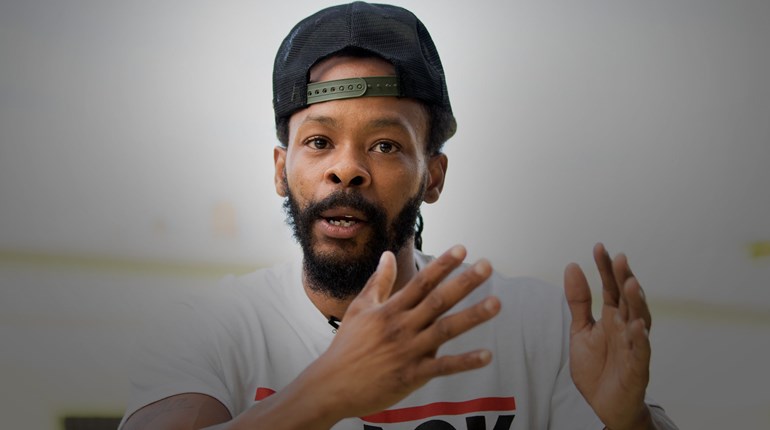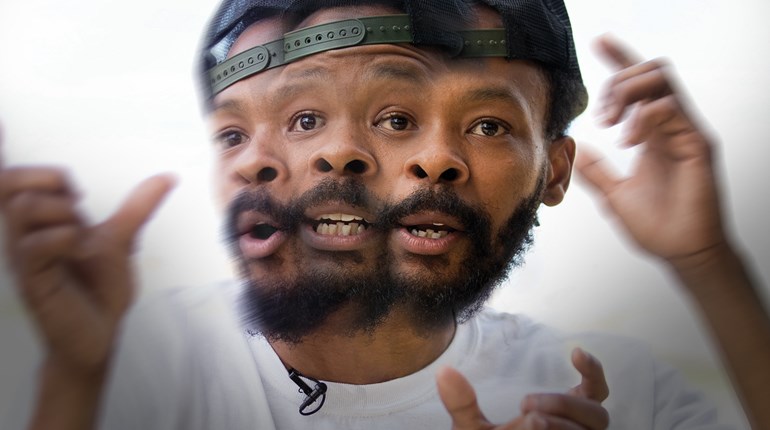
When college students were randomly attacked by groups of teenagers near Temple University in late October, mainstream media blamed “flash mobs.” The attacks occurred practically in the back yard of north Philly native Maj Toure, founder of Black Guns Matter and frequent A1F Daily contributor on inner-city violence. We asked Maj for his insights into this complicated situation, given short shrift by national news.
What happens when you mix ignorance, boredom, miseducation, poverty and gentrification? Sometimes you get situations like the one that happened recently near Temple University’s campus.
When you have hundreds of students—who, because of poverty, low funding for after-school programs, miseducation and horrible guidance, have nothing to do but concentrate on their own vices and social media—these types of things occur. Throw in situations of gentrification, where you have no one facilitating community relations, no one informing people that new people will be flowing in constantly—it’s a recipe for chaos.
Youngsters need not have such a hostile understanding of their environment that a police officer or a police horse does not feel like community to them.What happens when you remove all of the after-school programs in a city? When you leave teenagers—young people—without a means to express themselves, or what they think is a means to express themselves?
The scary part about this is there is no actual reason for why this attack occurred. Is it because these kids are “super predators”? Did they just want to be negative and malicious?
No. But youth need guidance. They need responsibility. They need activities. They need to not feel like they have to fight back against people who are strangers in their neighborhoods.
Youngsters need not have such a hostile understanding of their environment that a police officer or a police horse does not feel like community to them. Teenagers need to have productive ways that they can be developed from young people into mature adults. When you remove those and blame a lack of finances, yet find the funds to bring the Pope to town, you confuse people.
As far as the Temple University situation, I’m from North Philly. Temple University is in the heart of North Philly. Block by block, house by house, gentrification is occurring there. Whatever biases some parents and administrators at Temple might be telling their students, rather than establishing and creating a comforting understanding between the community and the students, seem to be manifesting as distrust and fear.
This is no different than community/police relations in a lot of urban areas. You have a situation where a youngster is coming to Temple University from Idaho or some other rural area and has never lived in an urban environment. He or she has been programmed to “be careful, be careful, be careful,” as opposed to recognizing that he is entering into an existing community. That person might be on edge, that person might be defensive. If you have in that same scenario a teenager who has been told that those students don’t care about his community, that they are not from his hood, that they are just there to use his community and take, take, take, aggression and disgust develops. That often leads to violent situations.So when the school district is mysteriously absent, and the parents are mysteriously absent, where is the accountability?
So when the school district is mysteriously absent, and the parents are mysteriously absent, where is the accountability? How do we make sure that when new businesses and universities expand into neighborhoods, we create a transition where community members aren’t displaced, both physically and mentally? How can Temple University figure out ways where teenagers are made to feel included at the school, as opposed to being viewed as outsiders in their own community?
These are all questions that have to be asked, because they are critical for dealing with these so-called “flash mobs.” In these types of frustrating situations, it is easy to point the finger just at Temple, or just at the students, or just at the teenagers, or just at parents, or just at the police, or just at gentrification. In truth, however, it is more of a holistic problem. All of these things contribute to the current situation. And all of these things need to be addressed or we will continue to have more of these types of incidents.
In this situation, the young lady was a victim of something that should have never happened. And all of us are to blame. All of us are responsible for that. We are the society that we are talking about. She is the true victim of ignorance, of poverty, of miseducation, of poor education, of gentrification. You may say, “Oh, that’s a stretch,” but I don’t think it is. All of these factors have far-reaching ramifications.
Now let’s look at the teenagers involved. Some of them have been charged with felony counts. Individual accountability would suggest that they need to be held responsible for their decisions, but at the same time, what are the conditions in the environment that created this situation? Leaving those conditions out of this equation only makes it possible for that behavior to be repeated—which is exactly what we want to avoid.
To neglect any of those factors is to create more opportunity for the same thing to occur again.Do those teenagers need to be held accountable for their criminal activities? Yes. But I think the bigger criminal act is to deal with their actions without addressing the conditions that created this environment, whether that is bad parenting, a lack of available activities, budgets disappearing from school systems, or poor university/community relations. To neglect any of those factors is to create more opportunity for the same thing to occur again.
One solution I would like to see is bringing archery and the shooting sports to urban youth. I would like to see teenagers in Philadelphia enthralled in the art and the craft of becoming safe, responsible young marksmen and women. I want them to understand the fundamentals of firearms and how that relates to safety and positive community relations. I want to see them learning how to break down their weapons, discussing the Constitution, and learning how to be a solution by staying on the right side of the law.
That way they can stay in a position where they don’t ever commit a felony. Then when they come of age they can have a license to carry in the city of Philadelphia. They can someday become Olympians or NRA instructors or activists. By training teenagers on how to be upstanding citizens, they’re not put on the offensive like those who attacked that young lady.
In hindsight, by training that young lady about firearms safety and knowledge, she might have been in a position, depending on her age, where she could have defended herself. Even if not with a firearm, she’d have the knowledge and self awareness of how to protect herself—and that’s important knowledge in a college atmosphere. Because where there is no order, there is chaos—chaotic situations that can end with a young college student being assaulted, and with teenagers facing felony charges.
None of those options are acceptable for American citizens. We have to change the conditions of the environment.
































